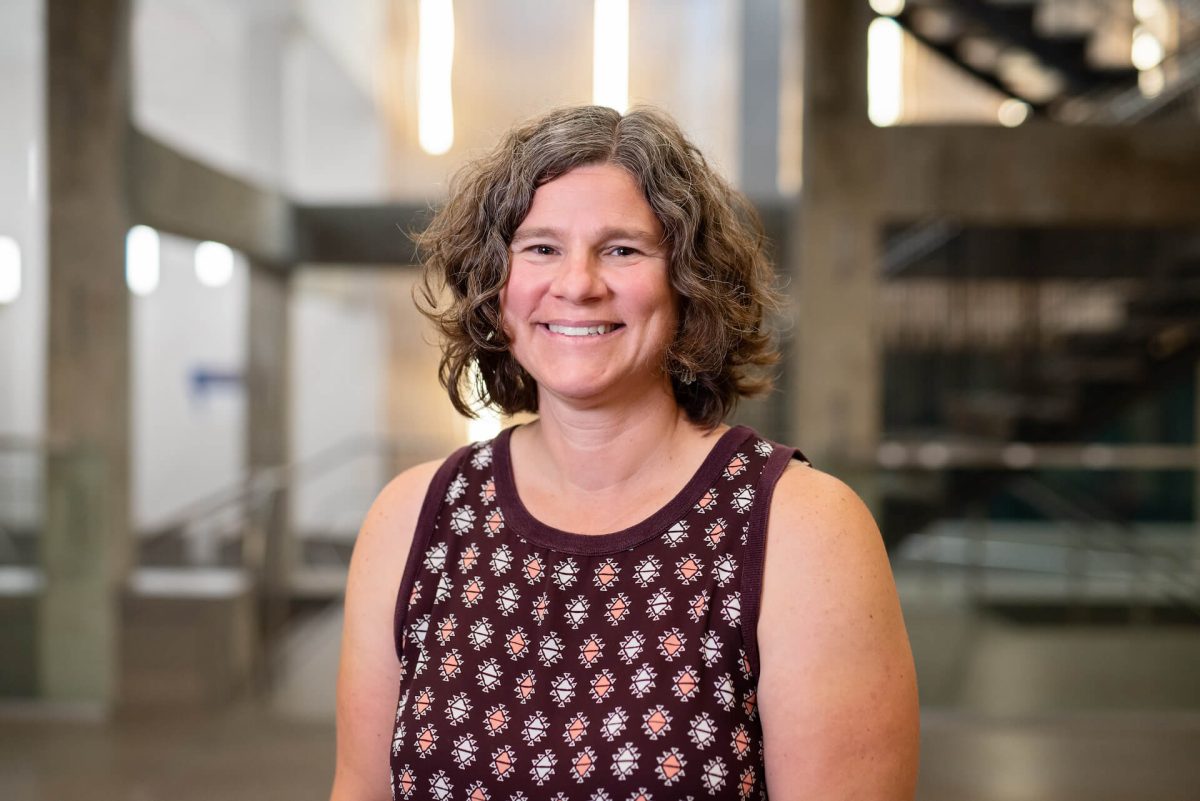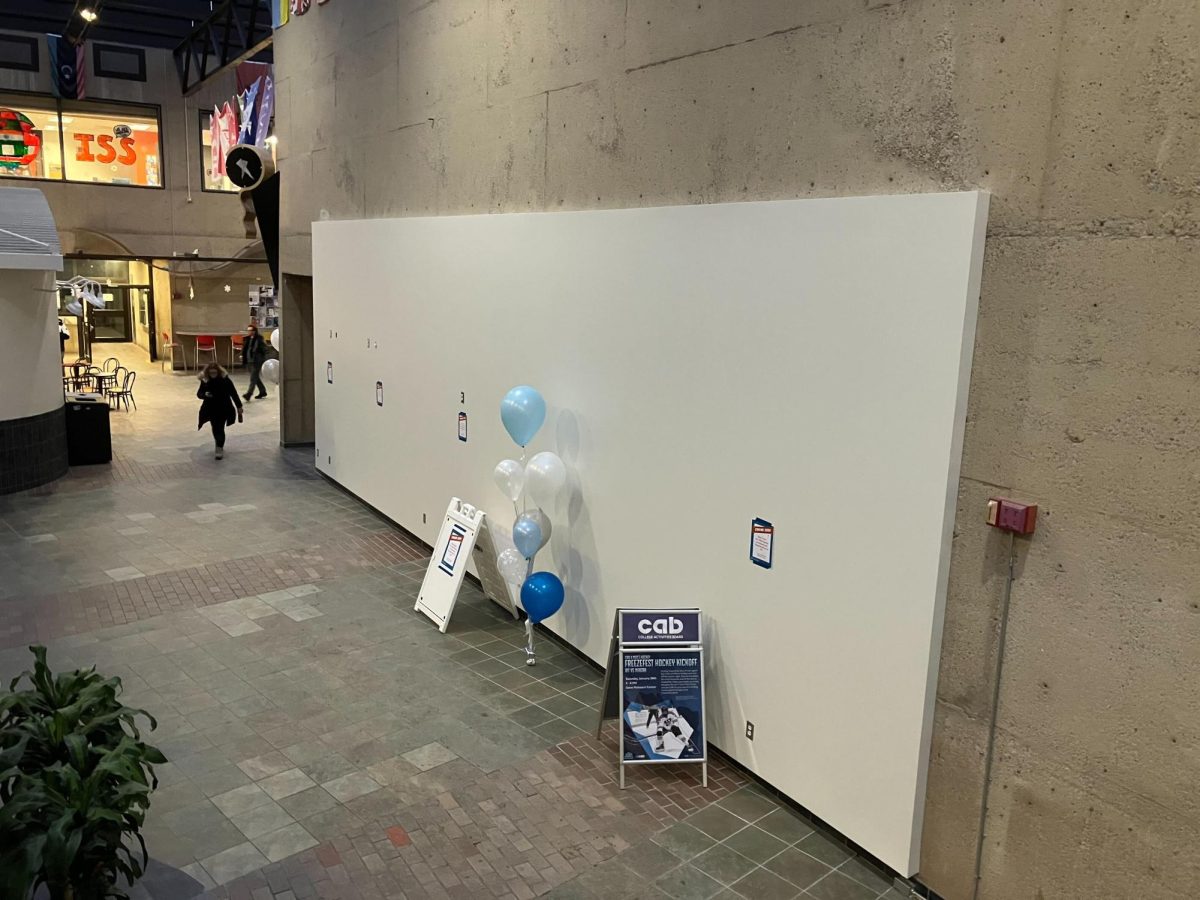On Aug. 18, Dr. Caroline Solomon officially assumed her role as NTID’s president. In a conversation with Reporter, she discussed inclusivity in higher education, student engagement and other pressing campus issues.
Transcription edited for conciseness and clarification purposes.
Q: When you officially take on your role of NTID president, what will be some of your top priorities?
A: One of my top priorities will be meeting the community. I am completely new to the community, so I’ll do a lot of listening and learning. At the same time, I’ll be thinking of new ways of doing things. But that’s going to take some time. I want to learn from the community that I’m coming into because they’re already doing a lot of great things. Honestly, what I’m looking forward to the most is meeting the students, learning about your backgrounds, what drives you and your hopes for the future.
Q: Your career has spanned teaching biology, leading research and then recently serving as Dean of Faculty for Gallaudet. How do you think those experiences will shape your leadership at NTID?
A: One thing about RIT right now [is that] it is moving to include a lot more research. And I feel that my strong research background is going to help NTID. I’ve always been very passionate about involving students in research. I take students with me out in the field, out on the boats, because it’s an opportunity to get students out in the field.
I’ve taught a lot of interdisciplinary courses as well — where I’ve taught with a historian or an economist — and we’ve discussed how our fields can come together to solve societal problems. For example, there was one course that I loved teaching, and that was about the Chesapeake Bay. And the historian that I taught with had a lot of ways to inform the history of the area — we’re talking about Native Americans, African Americans, to the people that were colonizers. Then, from a scientific perspective as well, I was able to add to the history, and so we were able to learn about the agricultural use at the time. I love doing those sorts of things and want to bring that passion and curiosity to NTID. It’s not just about science itself, but it’s about how other fields contribute to our understanding of societal problems.
Q: Following a relatively recent mental health tragedy in the NTID community — with the passing of Michael Altieri in October 2023 — how will you prioritize mental health and wellness for students, faculty and staff?
A: It’s very important to think about wellness and the mental health of everyone, as you mentioned. It’s important to create communities where everyone feels included. So, I’m going to learn about different student clubs, activities and student services we have that support everyone on campus. I want to make sure that people feel welcome and that they feel as though they belong, because everyone deserves that.
Q: With NTID’s federal funding being flat for the past two years and potential changes on the horizon, how are you preparing for possible shifts in federal policy, including those that could be spurred on by Project 2025?
A: One thing about Gerry Buckley, who is the outgoing president of NTID, [is that] he’s done an outstanding job on Capitol Hill. And he talks to people on both sides of the aisle, Republicans and Democrats alike, and we have support from both parties. So I believe the flat funding is great for this situation. Many places are dealing with grant cuts, and all of higher education is dealing with different reductions in revenue. But I think that NTID is actually in a very good position right now, and we have the previous leadership to thank for that.
Q: What role do you see student journalism and student input more broadly playing in your administration’s decision-making process?
A: When I was in college, my dorm was right next to the student newspaper building, and student journalists were always coming and eating at the dining hall that my dorm had. So, I was always interacting with student journalists. My sister-in-law is a journalist, and so I recognize how important it is to keep communication open with students, because I want them to understand what’s going on. If students want an interview, if they want to clarify something, or if they want more information, I am more than happy to meet with them.
Q: You helped create a database of scientific and technological terms in ASL. How will you bring that spirit of innovation to expanding academic access for NTID and cross-registered students?
A: Developing that sort of thing requires teamwork and collaboration. I love bringing people together to do different things. That is the spirit that I’ll be bringing to campus. When you have a purpose and you bring the right people together, everyone gets excited about what they can achieve and are actively doing. Right now, President Sanders at RIT does not have what we call in sign language a name sign. But name signs have to reflect an individual’s personality, so you have to get to know that individual before the Deaf community can assign them a name sign. So I’ve asked our student life team at NTID to involve the students in [the process of] giving President Sanders his name sign. And that’s the type of innovative spirit that I want to have.
Q: What impact or legacy do you hope to leave behind when your time as president comes to an end?
A: I want my legacy to be that I have expanded opportunities for Deaf and hard-of-hearing people. Right now, the employment rate for Deaf and hard-of-hearing people is not the same as the hearing population. And so I want to equalize that — I want to close that gap, because Deaf and hard-of-hearing people have a lot to contribute in the workplace. My whole career has been about expanding the pipeline for Deaf and hard-of-hearing scientists, specifically. Scientists, mathematicians, folks in the STEM realm and I want to see that continue to expand. I also recognize that NTID has other non-STEM disciplines as well, and the same thing would apply there, expanding opportunities for Deaf and hard-of-hearing people in general.









